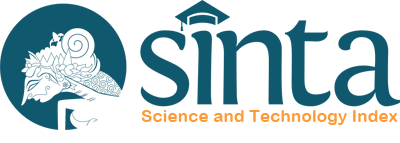The Effect of Internal Family Factors and the Role of Health Officials on Exclusive Breastfeeding
Abstract
Introduction: Great global attention isbeing given regarding the realization of exclusive breastfeeding, including by the Indonesian government. The realization of this in Indonesia has not achieved the desired percentage, including in Lombok Utara Regency, which is still approximately 61.2%. Other regions in the Province of NTB, one of which is Lombok Barat Regency, has been able to realize an exclusive breastfeeding percentage of 96.42%. Research on factors that affect exclusive breastfeeding in those two regions becomes very important to be done.
Objectif: to find out the significance of the effect of internal family factors (family structure, mother’s education, father’s education, mother’s occupation, father’s occupation, mother’s knowledge, father’s knowledge, and history of antenatal care) and to find out the role of health officials in the promotion of exclusive breastfeeding at the region of the Kuripan Community Health Center, Lombok Barat Regency, and Gangga Community Health Center, Lombok Utara Regency.
Method: The research design is a quantitative associative research; data collection was done by distributing questionnaires and data analysis used logistic regression.
Results: Out of 170 respondents for the research, it was found that 54.1% did not exclusively breastfeed and the other 45.9% did. Family factorswere found to have an evaluation of moderate criteria in providing support (average score of 3.34): the level of the mother’s education was in general still low (37.65% only completed and did not complete elementary school), where the criteriais the same relative to the father’s education and mother’s occupation (the latter generally non-employees, by 81.18% and 80.59% respectively),while mother’s and father’s knowledge on exclusive breastfeeding was still at moderate criteria, the mothers generally partake in antenatal
care (78,8%), andthe role of health officials is still not yet optimal (average score of 3.25). The resulting logistic regression model fulfilled the fit criteria of the model, which means that each added variable in the model will increase the fit of the equation. The Wald test (partial significance) found that only mother’s knowledge and the role of health officials have a significant effect on the alpha 5.0% on the probability of mothers exclusively breastfeeding in the regions of the Kuripan and Gangga Community Health Centers.
Conclusion: It can be stated that the vital role in realizing exclusive breastfeeding is that of the officials, who directly guided to increase maternal knowledge, awareness, and formation of behaviors
Downloads
 Viewer: 511 times
Viewer: 511 times
 PDF downloaded: 498 times
PDF downloaded: 498 times











